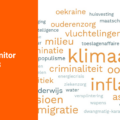
It takes two to tango; the polder model deserves a second chance
These are special times. Since the outbreak of the corona crisis, there appears to have been a significant shift in power. While the government has left control to the market and the business community in the slipstream of neoliberal thinking in recent decades, a different trend has become visible in recent months.
Unfortunately, the underlying reason is a pandemic that few anticipated and that has reshaped the relationship between government and business. With the government now in charge. Sometimes with draconian measures to keep certain industries afloat. Sometimes in a more subtle way. Consider, for example, the ambition of Frans Timmermans and his colleagues to make Europe more sustainable. And in the economic field you also see the influence of "new thinkers", who place more responsibility on regional and national governments, gaining ground.
The government and the business community are reinventing their relationship, which also includes a different way of working together on social issues. It can help to view the current situation as a glass half full instead of half empty. After all, the outbreak of the coronavirus has turned traditional relations upside down; Instead of in the passenger seat, the government is now behind the wheel.
The relationship of the Dutch government with the business community and NGOs has long differed from other countries around us. Our famous polder model is based on a government that actively focuses on public affairs such as the environment, education, social relations, etc., which means that a lot is regulated. The polder model, also called the stakeholder model, produced good results and international prestige, but seemed to have become worn out after the turn of the century and was increasingly being replaced by the Anglo-Saxon model: the shareholders model.
However, experience shows that social change cannot be achieved solely by concluding agreements. The government is increasingly putting the ball in the hands of the business community and asks them to take their responsibility and contribute to solving certain social issues.
Stimulate, regulate and enthuse
It is the government's task to stimulate, regulate and enthuse. Stimulation is done in different ways. By providing the right information and increasing awareness of specific issues. By regulating: recent financial and fiscal measures are examples of this. And by inspiring enthusiasm, you as a government could take the lead in rewarding the annual report with the most sustainable mix of policy and measures in the field of corporate social responsibility.
In the meantime, other initiatives are also being considered to encourage companies to take their social responsibility. An example comes from France. New legislation – the so-called Pacte – was introduced there last year. This new law asks companies to explicitly formulate their right to exist, their raison d'être, in their articles of association, whereby they must focus not only on the interests of the company itself, but also on how a company can contribute to society. The company can also register as a 'société à mission', where separate supervision assesses whether the company properly fulfills and implements its mission and right to exist. The companies that comply with this and that invest heavily in social innovations are then legally protected by the French government against activist shareholders. The aim of these measures is to create as many conditions as possible for long-term investments aimed at social projects.
In France, the first companies have already announced their raison d'être. An example that will probably also be followed in the Netherlands. The signals are already green. For example, several parties have stated that only companies that are socially responsible should receive emergency support and that companies should take into account not only financial interests but also social interests when making decisions in June. Dutch politicians and professors go even further: in addition to recording the raison d'être in the statutes, they advocate a do-good standard: in which companies position themselves as responsible citizens and are also accountable for this. For them, the Rhineland model, in which the interests of stakeholders are also taken into account, is paid too much lip service.
In this way, prosperity and well-being can go hand in hand. The time is perhaps more ripe for it now than ever.
Issuemakers is an agency with extensive experience in creating and managing (social) issues, including in the field of healthcare. It is in our DNA to support organizations in this and provide them with the right advice.
For more information about this, please contact us at .





